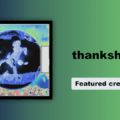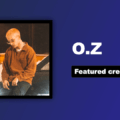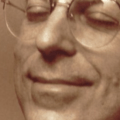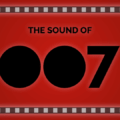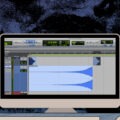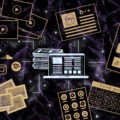Plagiarism in music is nothing new. In fact, it’s been around as long as the music industry itself. The idea of what exactly belongs to whom, however, has been changing throughout the years, leading us to an interesting crossroads in music.
What was once a simple case of someone blatantly stealing another’s music has evolved into a situation where being at fault is far more ambiguous. Music plagiarism is not only widespread, it’s pretty much unavoidable, and it’s heading down a very strange road. Now and in the future, identifying plagiarism looks like a difficult task, which puts musicians in a tough spot.
We do have a textbook definition of plagiarism: it’s when someone takes the work of others and presents it as their own. In the world of music, the person claiming copyright infringement has to prove a couple of things. The first is access, meaning that the defendant had heard, or could reasonably be presumed to have heard, the original song prior to writing their own. The second is substantial similarity, when the average listener can tell that one song has been copied from the other. The more elements the two works have in common, the more likely they are to share creative similarities.
This all sounds very black and white, but there’s still a huge grey area to consider. We’re always warned in school about the evils of plagiarism; passing off others’ words and ideas as our own can lead to being expelled. Quoting and recognizing the work of others, on the other hand, are key to successful writing and research. Music, however, is a different animal; the lines aren’t as well defined. Should a songwriter be able to release music that has a similar melody to another song, but completely different lyrics and tempo? Is sampling plagiarism? Or is it just a more modern form of creativity? Perhaps most importantly, are the current copyright laws doing their job correctly?
The twisting tale of plagiarism in music is full of sharp turns, major upsets, entire genres being spawned, and general confusion, both in terms of the copyright laws and the music industry as a whole. In this three-part series, we’ll take a look at the evolution of music plagiarism through the decades, from Led Zeppelin, to Olivia Rodrigo. It’s by no means cut-and-dry, but as with a lot of things, it did start out that way.
Carbon Copy
One of the most notable, early examples of music plagiarism is also one of the least complicated. In 1963 The Beach Boys released “Surfin’ U.S.A.”.
It was a hit. The biggest hit of 1963, in fact. It solidified The Beach Boys’ place in music history books, became the soundtrack of a generation, and was foundational of the California Sound. And yet, it’s not their song. We can say that definitively now, because once Chuck Berry gave one of the first major plagiarism cries following its release, The Beach Boys fessed up. They stole everything but the lyrics from Berry’s “Sweet Little Sixteen”.
Luckily, there’s some humility here. The Beach Boys gave Berry songwriting credits on every release of “Surfin’ U.S.A” after 1966. It’s reported that Berry himself was actually quite fond of the ripoff too, which leaves this story wrapped up in a neat little bow. Unfortunately, that’s as simple as it gets.
In 1970, George Harrison released the triple-album All Things Must Pass. Sticking out near the top of the record’s formidable tracklist is “My Sweet Lord”, a saccharine, spiritual burst through the clouds, that’s arguably one of Harrison’s best solo efforts.
Unlucky for him, The Chiffons and their publisher Bright Tunes had something to say about it, and as a result one of the longest running plagiarism court cases in U.S. history ensued. Harrison claimed that his plagiarism of “He’s So Fine” by The Chiffons was purely accidental. He said as much in the biography I, Me, Mine, stating, “I wasn’t consciously aware of the similarity to ‘He’s So Fine’. When I wrote the song it was more improvised and not fixed”.
The court agreed, oddly enough. Despite the judge concluding that, “The two songs are virtually identical”, it was also decided that Harrison had simply copied the song subconsciously. So, it seems that you can get away with shameless plagiarism in court – if you’re a Beatle, that is.
When it comes to barefaced ripoffs, there is one group that reigns supreme. The number of times Led Zeppelin has been brought into question is truly something to behold. They almost made an art form out of plagiarism. The band themselves would, of course, always defend their theft as an homage or adding a shot of adrenaline to songs they admired, but there’s no doubt they took some serious liberties when it came to the music of others.
“Babe I’m Gonna Leave You” from Zeppelin’s debut album was actually written by Anne Bredon in the 1950s, Robert Plant knowingly stole lyrics and all from Willie Dixon on “Whole Lotta Love”, and heck, they didn’t even bother changing the title of “Dazed and Confused” by Jake Holmes when ripping it off. Drummer John Bonham even took a drum beat from Little Richard and used it as the engine to drive Zeppelin’s “Rock & Roll” into the stratosphere. We will never see a prosecution for that one, though, because unlike lyrics and melodies, beats are not protected by copyright law – not when they’re played live anyway, but more on that later.
The list of Zeppelin’s transgressions could circle the globe, but there’s a certain track that sticks out for a couple of reasons. For one, it’s not only their most famous song, it’s one of the most famous songs of all time.
Secondly, it’s a matter that’s still not settled – according to some anyway. In 2014, Zeppelin was sued by journalist Michael Skidmore on behalf of the estate of Randy Wolfe, the late frontman of the band Spirit. It was argued that Zeppelin stole the song’s opening riff from Spirit’s “Taurus”.
One of the key factors in this case, and a lot of copyright cases, is access. Basically, is it conceivable that someone had access to the music they are supposedly plagiarizing – is it likely they’ve heard it before? In this case it appears there was access, as it’s reported that Plant saw Spirit play at a club in Birmingham in 1970, a year before “Stairway to Heaven” was released. Spirit’s bassist, Mark Andes, testified that he met Plant at the show and even played snooker with him afterwards. Plant, however, is adamant that he has no memory of the night. Not because of drug or alcohol consumption, as you may expect, but because he was involved in a severe car crash on his way home. This makes the idea of access all the trickier.
Unfortunately for Spirit, the jury concluded that the two songs were “not intrinsically similar”, but it should be noted that they were not allowed to listen to “Taurus” during the trial due to it being protected under the old 1909 Copyright Act, which only applies to sheet music. This led to an appeal which The Supreme Court denied in March 2020, essentially handing Zeppelin a victory by default. That should be the end of it, yet as far as Skidmore’s lawyer is concerned, it’s a battle that will ramble on. We may never have a definitive answer on that one, but it would be a lot easier to believe Zeppelin if they hadn’t been guilty of numerous other incidents of plagiarism throughout the years.
While the ’60s and ’70s brought several plagiarism cases into the fold, they were all relatively straightforward. It was theft of a melody, lyrics, or even a whole song that garnered debate. The rise of hip hop in the ’80s and ’90s, however, awoke a different beast entirely. Sampling moved underground, but artists such as Beastie Boys saw major success with albums like Paul’s Boutique which featured somewhere between 100 and 300 samples. Nowadays, sampling is still part of the musical fabric, but it’s nowhere near as democratized as those early days, as we’ll learn in Sample Me This: The Evolution of Plagiarism in Music Part 2.
Text written by Daryl Keating
Illustration by Yihong Guo




